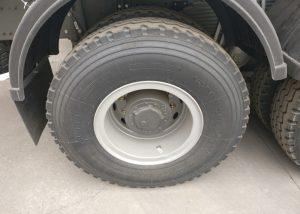Monday to Saturday - 8:00 -17:30
Tune-Up on a Car: The Ultimate Guide to Maintaining Your Vehicle
Introduction
A car tune-up is crucial for maintaining the health and performance of your vehicle. It involves routine checks and adjustments to ensure that all systems are functioning optimally. Regular tune-ups can improve fuel efficiency, enhance engine performance, and extend the life of your vehicle. In this comprehensive guide, we will explore the ins and outs of a car tune-up, covering everything from what a tune-up entails to practical tips for car owners.
What Is a Car Tune-Up?
A car tune-up is a routine maintenance service that primarily focuses on the engine and its key components. The goal is to ensure that the vehicle runs smoothly, efficiently, and reliably. While the term “tune-up” has evolved over the years, it generally includes the following services:
- Replacing spark plugs and wires
- Inspecting the air filter
- Checking fluid levels
- Examining the ignition system
- Testing the battery and charging system
- Evaluating the exhaust system
Why Is a Car Tune-Up Important?
Car tune-ups are not just about keeping your vehicle in good running condition; they also play a significant role in your safety on the road. Below are reasons why regular tune-ups are essential:
1. Improved Performance
A tune-up ensures that your engine runs efficiently, providing you with better acceleration and smoother driving.
2. Increased Fuel Efficiency
Regular maintenance, including a tune-up, can help improve fuel efficiency, saving you money at the pump in the long run.
3. Extended Vehicle Lifespan
By addressing potential problems early, you can extend the life of your vehicle, delaying the need for costly repairs.
4. Enhanced Safety
A well-maintained car is safer to drive. Regular tune-ups help identify and fix issues that could lead to accidents.
5. Lower Emissions
A tuned engine produces fewer pollutants, contributing to a cleaner environment and helping you pass emissions tests.
When Should You Get a Tune-Up?
The frequency of tune-ups can vary based on the age of your vehicle, driving conditions, and the manufacturer’s recommendations. Here are general guidelines:
1. Mileage-Based Schedule
Most manufacturers recommend a tune-up every 30,000 to 100,000 miles, depending on the vehicle type and model.
2. Age of the Vehicle
Older cars may require more frequent tune-ups than newer models, particularly if they show signs of decreased performance.
Common Signs Your Car Needs a Tune-Up
Here are some indicators that your vehicle might be due for a tune-up:
1. Decreased Fuel Efficiency
If you notice you’re filling up more frequently, it could be time for a tune-up.
2. Rough Idling
Car engines should idle smoothly. If your car shakes or vibrates while idling, it’s a red flag.
3. Engine Warning Lights
Illuminated warning lights on your dashboard may indicate an issue that could be resolved during a tune-up.
4. Difficulty Starting the Engine
Struggling to start your vehicle can be a sign of ignition system issues that a tune-up can address.
What Does a Tune-Up Include?
A typical car tune-up involves several important checks and replacements:
1. Spark Plug Replacement
Spark plugs ignite the air-fuel mixture in the engine. Over time, they can wear out, leading to misfires and poor engine performance. It’s advisable to replace them every 30,000 miles.
2. Air Filter Inspection and Replacement
A clean air filter ensures optimal airflow to the engine. Replace it every 12,000 to 15,000 miles for best results.
3. Fluid Checks
All vital fluids should be checked and topped up. This includes oil, coolant, brake fluid, and transmission fluid.
4. Ignition System Check
Inspecting ignition coils and wires ensures your car starts smoothly and runs efficiently.
5. Battery and Charging System Test
A weak battery or malfunctioning alternator can leave you stranded. Regular testing can prevent unexpected issues.
6. Exhaust System Inspection
A tuned-up exhaust system reduces emissions and ensures your vehicle runs quietly and efficiently.
DIY Tune-Up Tips for Car Owners
If you want to save money and perform some tune-up tasks yourself, here are practical tips:
1. Gather Necessary Tools
Basic tools like wrenches, screwdrivers, and a spark plug socket will help you with DIY tune-up tasks.
2. Use the Owner’s Manual
Your vehicle’s owner’s manual provides specific instructions on maintenance schedules and replacement parts.
3. Clean Air Filters
If you’re not ready to replace your air filter, cleaning it can enhance performance temporarily.
4. Change Spark Plugs Yourself
Replacing spark plugs is a manageable task for most DIYers. Follow the steps in your owner’s manual to do it right.
5. Monitor Fluid Levels
Regularly check and replenish fluids, such as oil and coolant, to maintain optimal vehicle performance.
How to Find a Good Mechanic for Tune-Ups
Choosing the right mechanic for a tune-up is vital. Here’s how to find one:
1. Ask for Recommendations
Friends and family can provide valuable insights into trustworthy mechanics.
2. Check Reviews and Ratings
Online reviews on platforms like Google and Yelp can give you an idea of a mechanic’s reputation.
3. Verify Certifications
Ensure the mechanic is certified by recognized bodies such as the National Institute for Automotive Service Excellence (ASE).
4. Get Estimates
Always ask for estimates before proceeding with any service to avoid unexpected costs.
Cost of a Tune-Up
The cost of a car tune-up can vary significantly depending on various factors:
1. Type of Vehicle
Luxury cars typically cost more for tune-ups due to specialized parts and labor.
2. Location
Labor costs can vary based on geographic location. Urban areas may have higher service fees than rural ones.
3. Services Performed
A basic tune-up may cost between $100-$300, while a more comprehensive service could exceed $500.
Frequently Asked Questions (FAQs)
1. How often should I get a car tune-up?
It depends on the vehicle, but generally, every 30,000 to 100,000 miles is recommended. Always refer to your owner’s manual.
2. Can I do a tune-up myself?
Yes, many components of a tune-up can be done by yourself, such as changing spark plugs and air filters.
3. What happens if I skip a tune-up?
Skipping a tune-up can lead to reduced performance, poor fuel economy, and potentially costly repairs down the line.
4. How long does a typical tune-up take?
A standard tune-up can take anywhere from 1 to 3 hours, depending on what’s involved.
5. Can a tune-up improve my car’s fuel efficiency?
Yes, regular tune-ups can improve fuel efficiency by ensuring that the engine is running at optimal performance.
6. What are the symptoms of worn-out spark plugs?
Common symptoms of worn spark plugs include rough idling, poor acceleration, and increased fuel consumption.









